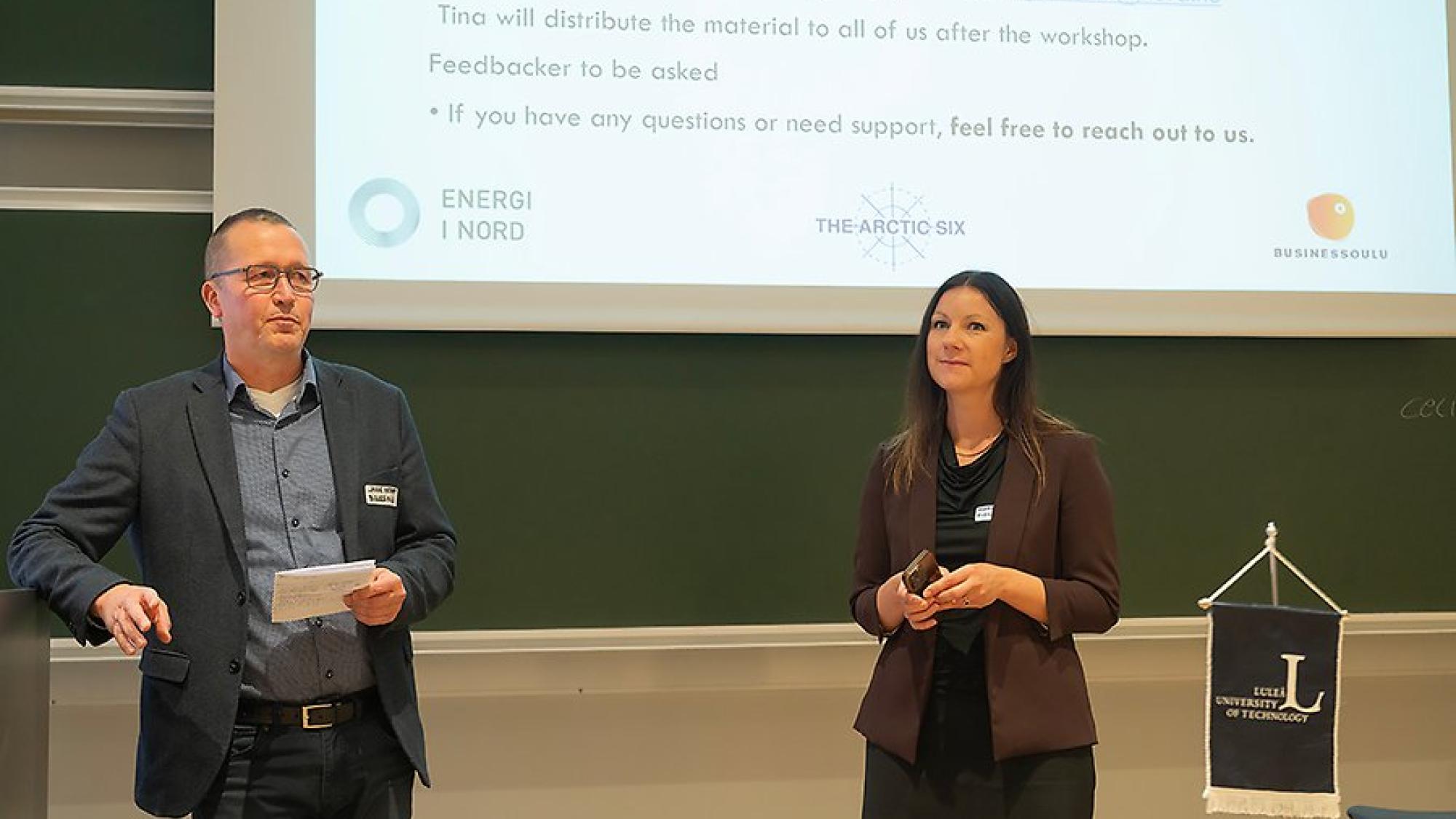Cross-boundary cooperation on energy transition will strengthen Arctic communities

Energi Nord is a collaboration between stakeholders in the energy sector in Northern Norway. Its aim is to contribute to energy transition and value creation in the north. The other two organisers were Business Oulu and The Arctic Six Extended Energy Task Force. Business Oulu aim is to create new jobs through sustainable business growth in the Oulu region in Finland. The Arctic Six Extended Energy Task Force is part of The Arctic Six, a collaboration between six universities in the Arctic region of Norway, Sweden and Finland. The Arctic Six Extended aims at collaboration with industry, public sector and the civil society within several fields, one of them is energy.
“The idea is that together we have a stronger voice, both in the Nordic countries and towards the European Union. The latter is lead by the EU Task Force but its work permeates all the task forces, says Tina Bringslimark, leader of the Energy Task Force and Head of R&D at Nord University in Norway.
A common history
Janne Hietaniemi, Key Account Director for Cleantech and Industry from Business Oulu thinks that the Nordic Arctic have a lot in common:
“Our societies are similar, and we share a common history. We also have common challenges. The Arctic nature is very sensitive. We share common challenges, such as land use conflicts, for example between energy infrastructure and reindeer herding. The challenges are also administrative. The administrative and political centres in all our countries are in the south. They do not always understand our circumstances in the north but tend to think that our role is to produce for the south.”
Marit Magelssen Vambheim agrees:
“This is why it is so important for us from the business sector to work together with researchers and politicians who live and breathe here in the north and who understands the conditions in the Arctic.”
Janne Hietaniemi notes that in public debate, the most pressing issue at the moment is the geopolitical situation, wich threatens to overshadow the green transition. He considers this a flaw in thinking.
“We tend to focus on only one topic at a time. But solutions to both the geopolitical situation and climate change may come from the same direction. For example, domestic non-fossil energy is part of both national security and the green transition.”
Break silo thinking
One of the public sector representatives attending the workshop is Juha-Pekka Sievanen, Preparedness Coordinator at the Economic Development Transport and Environment Centre of North Ostrobothnia in Finland. His role is to secure the supply chain in the region and to support business for different kind of crises.
“I think this is a good initiative. To secure the supply chain, for energy and other goods, we need cross-boarder cooperation, especially up north. From my perspective, one of the challenges is information sharing. A lot of information stays at national level. It doesn’t reach the regional bodies. I also think that within the Nordic countries we should break our silo thinking and that various actors should sit at the same table to find out the synergy benefits. I also hope that national regulations will not cause further restrictions on the range of activities in addition to EU regulations.”
The core outcome of the workshop were four proposals for research projects crystalised in smaller groups in which, not only the research questions were identified, but also potential financers and project leaders. The projects had the following themes:
- Creating secure, efficient and resilient integrated energy systems in the Arctic in a business economically viable way in a complex environment. The project should identify enablers such as technology, policy, regulations and cross-border relations and develop resilient, algorithm-based infrastructure to support secure energy supply.
- Mapping local attitudes towards energy transition with the aim to build trust and gain knowledge as a basis for procedural and distributional justice among regional stakeholders. The project should make surveys on citizens, politicians and industrialist in the Nordic Arctic and compare the result between the countries.
- Finding offtakers in the hydrogen market by mapping regulations, end user requirements, costs and production specifications.
- How to build resilient and carbon neutral industries/value chains in Nordic North.
Among the researchers participating were Cecilia Wallmark, Director at the Centre for Hydrogen Energy Systems Sweden, C2HESS, at Luleå University of Technology.
“This workshop has strengthened my belief that cooperation between our countries and our organisations is vital for the future. The commitment of the participators today convinces me that the projects proposed will be realised.”
The workshop was attended by approximately 50 participants representing academia, industry and public sector in the Arctic region of all three countries.
Published originally 2nd of September 2025 at Arctic Six website
https://www.arcticsix.org/arctic-six/news/news-archive/2025-09-02-cross-boundary-cooperation-on-energy-transition-will-strengthen-arctic-communities